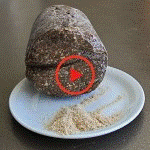The Relationship Between Carbohydrates and Weight Loss
Lifestyle Tags: between, Carbohydrates, Loss, Relationship, WeightNo Comments »
What is the relationship between eating carbohydrates and gaining weight? The relationship between these two is actually much more straightforward than you may think! Our video explains the relationship between eating carbs and gaining weight, and how exactly this happens within the human body. We review the actions of insulin and how it plays a part in both weight gain and loss. Our video defines for you the types of carbohydrates that are available for consumption, and how it is that eating better carbs had to help you improve your health and lose weight naturally. Written by endocrinologist Dr. Christopher Palmeiro and produced by Doctablet®
You can find the post for this video at:
https://doctablet.com/weight-loss/carbohydrates-and-weight-loss/
Please visit Doctablet for more topics that will supplement the information you see in this video:
https://doctablet.com/
Also!
You can ask questions related to this topic, we enjoy answering questions, it helps us get feedback and gives us material for future videos.
ALSO!, most important!
Subscribe to our YouTube Channel @Doctablet ! It means the world to us!:
https://www.youtube.com/channel/UCiGhz8d21xvPWs7FgLx2sMFA/?sub_confirmation=1
.
Chapters
0:00 Introduction
0:49 Can you lose weight on a low carb diet?
1:32 Is a low carb diet safe?
The low-carb diet trend has been around for decades and has gained immense popularity in recent years. These diets typically involve reducing the intake of carbohydrates, such as bread, pasta, and sugary foods, and increasing the intake of protein, healthy fats, and non-starchy vegetables. Many people follow this diet in the hopes of shedding those extra pounds and achieving their health goals. However, before jumping on the low-carb bandwagon, it’s important to understand the truth about these diets and whether they are really effective for weight loss and overall health.
According to nutritionists, low-carb diets can be effective for weight loss, but they may not be suitable for everyone. The key is to find the right balance of nutrients and to choose healthy, whole foods. It’s also important to remember that weight loss is not just about what you eat, but also about exercise and overall lifestyle habits. Therefore, it’s important to consult with a healthcare provider before starting a low-carb diet or any other weight loss program to ensure that it’s safe for you and to get personalized recommendations.
Some people find that a low-carb diet helps them lose weight quickly, but others may experience negative side effects such as fatigue, constipation, or bad breath. Additionally, low-carb diets can be difficult to sustain in the long term, leading to weight regain once the diet is abandoned.
However, low-carb diets have been shown to have some health benefits beyond weight loss. They can improve blood sugar control and reduce the risk of certain diseases such as heart disease, type 2 diabetes, and metabolic syndrome. Nonetheless, it’s important to ensure that you’re getting all the essential nutrients and to choose foods that work for your body and lifestyle.
In conclusion, the truth about low-carb diets is that they can be effective for weight loss and have some health benefits, but they are not a one-size-fits-all solution. The key is to find a healthy balance of nutrients and to choose foods that work for your body and lifestyle. By making informed choices and taking a holistic approach to weight loss, you can achieve your health goals and feel your best.
Video Rating: / 5































































